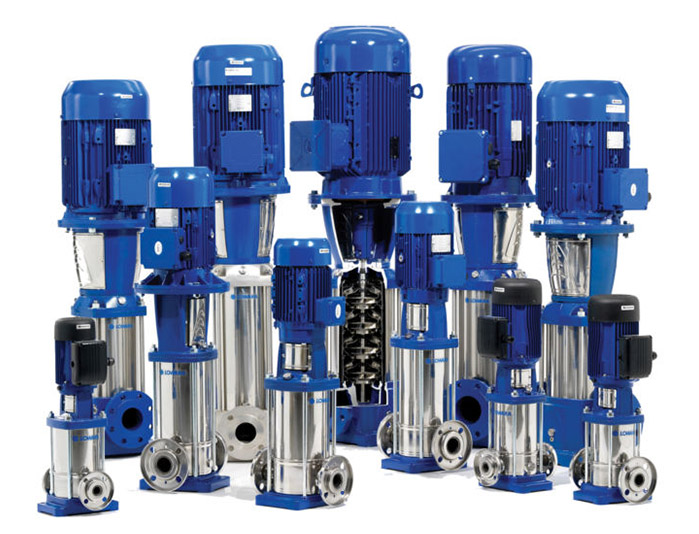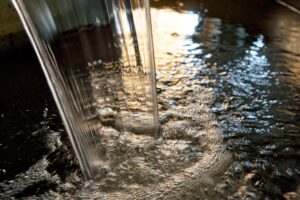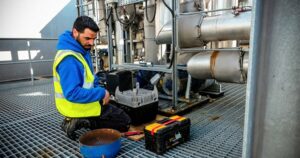It may seem obvious, but low-quality water pumping systems can prove costly in the long term.
Sometimes it’s a simple miscalculation of your requirements, other times it’s poor planning, implementation, and maintenance. Here, we look at how to implement the pumping system you need, commons issues with systems, and how to fix them.
Key Steps When Implementing a Pumping System
The key to executing the implementation of a good pumping system is to plan accordingly. To do that, consider the follow steps:
- How much water do you need? Assessing what you will use water for and how often you will use it determines how many pumps and wells you need.
- Test the water for quality. Having sunken your well, test the water for lime, E. coli, etc. If something is detected, apply and follow a treatment plan. Quality reports can be done independently.
- Will you require booster sets? These are your responsibility and not that of the main supplier, e.g., Irish Water. Booster sets are important if, for instance, you operate a hotel and go through an expected busy period. They’re also important for fighting fires.
- Upscaling. Do you expect to expand in the future by adding an extension? Consider all possibilities from the outset.
- Choosing pumps. You could face massive energy bills when your pumps are too big for what’s required. Jockey pumps are useful in this situation if your premises experiences various levels of water usage throughout the day.
Taking these steps before implementing your pumping system will help to reduce the likelihood of issues arising down the line.
What are the Most Common Problems with Water Pump Systems?
There’s a wide range of problems that can occur with water pumping systems, all of which must be taken seriously.
A leak, even the quiet drip of a canteen tap, can cause pumps to run constantly. This puts them under pressure and can lead to damage and even greater energy bills. Blockages which develop over time are another issue. These can eventually lead to a massive water pump repair jobs that causes disruption to production. This, of course, is not ideal as the cost of stalling work is often significant. In this situation, take note of water flow and if something seems off, go about contacting a water specialist at once.
Businesses and new property owners can encounter water issues too if they don’t know where their water is coming from. It may be that your premises and its pumping system is set up for a degree of use below what you require. Without a facilities manager to contact, you could face problems if the pumps are working too hard.
And finally, choosing the wrong pump can lead to serious problems. That’s why it’s crucial that you consider the planning and implementation steps outlined previously.
How do you Maintain a Water Pump and Pumping System?
Maintaining your water pumping system means you’re less likely to encounter costly problems. There are a number of ways to do this, such as:
- Monitoring: Monitoring your water pumping system is key. Data monitoring is especially helpful here as reports will highlight signs of potential problems.
- Frequent cleaning: Servicing and keeping your pumps and piping clean will keep them running efficiently for as long as possible. If you have a facilities manager, they should oversee this. If you don’t, you can always contact a specialist.
- Plan ahead: An obvious point perhaps, but essential, nonetheless. Figure out what you’ll use water for, how much you’ll use, and what kind of pump you need. This will help ensure everything runs smoothly.
- Stock spare parts: Yes, you can always contact a specialist, but it helps to keep spare parts on-site too. These may only be a quick fix, but they will ease the pressure to repair your pumps, too.

What to do if you Notice an Issue
Water pump not working correctly? Unsure of what to do? Tried panicking and realised it didn’t solve anything? That’s okay, it happens.
When you notice a problem, don’t ignore it. Take every little issue seriously because, should you downplay it, it will likely become a big problem over time. So, when something seems off, contact your facilities manager or a specialist straight away. As pumping issues exist on a case-by-case basis, so too will the solution. This means the cost will vary too, which makes it important to choose a pump partner who offers a Service and Maintenance Policy, such as Campion.
How do I Choose a Good Pump?
The first step to implementing and maintaining a good water pumping system is to contact a specialist. At Campion, we have over 35 years of experience providing pumping and water pump solutions to multiple industries across Ireland. We help our customers maintain their water pumping systems by providing Service and Maintenance agreements our innovative application, Campion Connect.
Campion Connect integrates with any pumping system and will identify and communicate a problem before it becomes an emergency. Its accurate monitoring provides 24/7 monitoring and helps you optimise pump system performance.
So, if you’re looking to implement a water pumping system or need help fixing one, contact Campion today.











